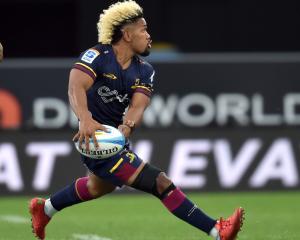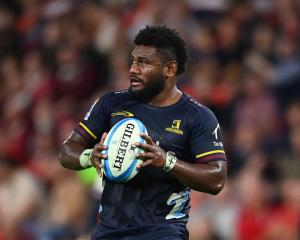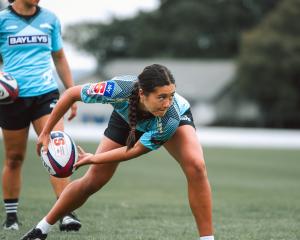The supply of players and the ability to get front-rowers has come under the spotlight as Pirates struggles to field a team for this week's premier game against Taieri.
A Dunedin Metropolitan Rugby Committee meeting in Dunedin on Wednesday night extracted commitments from clubs to lend players to Pirates. It should be known today whether Pirates will front to play against Taieri.
Kaikorai chairman John Griffiths said getting players was no longer easy and clubs had to be very proactive.
"It is extremely hard to get players. Front-rowers are as rare as hens' teeth and a lot of the time they get injured.''
Griffiths said there were many reasons why players were dropping away.
"You probably can't say there is one whole reason. People have to work a lot more on Saturdays, so that does make a big impact.
"Lots of players end up with the one club as players want to stick together. I can understand that but then you haven't got a competition, as those teams don't have anyone to play against it.''
Clubs had to have rugby co-ordinators to try to attract players and appoint coaches early, which Kaikorai was doing now for next season.
He said it would be a real shame if the competition went down to eight teams.
Green Island chairman Liam Davies said there was a general lack of players around the city.
Young players were losing interest at high school, giving the game away and that was flowing through to clubs.
Green Island had experienced a couple of tough years but had improved this year and won two games already.
Its senior side combined with Harbour to field a team.
Too many players were dropping out of the sport when they went to high school and he wondered if it would be better for those players to stay with their club in their secondary school years.
He hoped the competition would not go to eight teams.
There would still be five or six strong sides and a couple of weak sides as there was now, he said.
Harbour chairman Lance Spence said the player supply issue had been looming for a while.
"They've [Otago Rugby] have had their heads in the sand for a long time. It is pretty hard to keep a club going,'' Spence said.
He said the Otago union was working hard now but it was going to be very hard to dig out of the situation it faced.
For clubs to survive they needed to be aligned with other sporting clubs to create a community facility.
Players were dropping out of the sport too early.
Spence felt clubs had to amalgamate because of finances and this would lead to an eight-team competition.
University chairman Paul Hessian said most clubs now were dependent on the student population. With a standard three-year degree, players did not hang around.
University realised it could not just expect students to play for it and was working hard to maintain players.
He said every club had issues with props and parents did not want their children to play in the front row, which flowed through.
Suburban clubs had it tough as many suburbs were changing.
"The people from those suburbs are still going along to support but there are not the players from those suburbs to play the game any more,'' Hessian said.
Southern chairman Blair Crawford said he was sorry to hear of Pirates' plight.
A club's depth was really tested when it got a run of injuries and Southern was continually looking at recruitment and retention.
"Probably the wider question is, does Dunedin have the player numbers and quality to maintain 10 premier sides? It is a lot of props to find to field a team. You only need one specialist first five or openside flanker. Prop isn't always the favourite position when you play rugby growing up.
"No-one likes to see any club fall over, but with the local player base probably reducing, clubs are becoming more reliant on the out-of-town students.
"A lot of players feel if they haven't made it by the time they leave school, then that's their rugby career over, whereas there are lots of grades to suit their ability and many could develop after leaving school with good coaching or a late growth spurt. The drop off from school to club is a real issue.
"There seems to be an attitude or a need for immediate success from the younger players these days, whereas in my day you would play a couple of years of colts, move to the premier twos and then earn premier selection.
"Players these days will move to another club where they see an opportunity to make a premier team, before waiting their turn within a club.''









